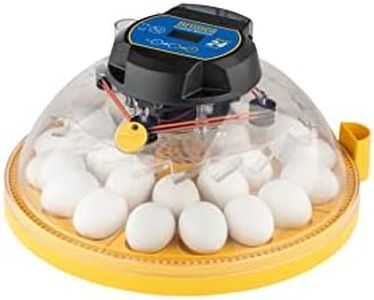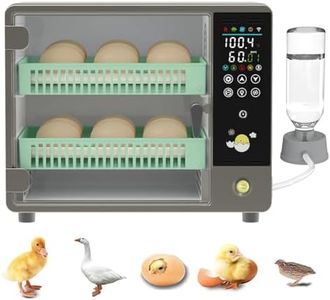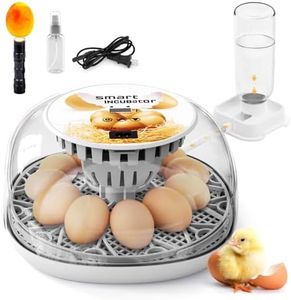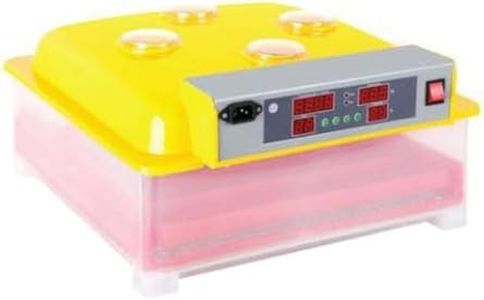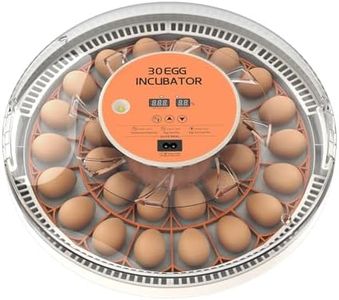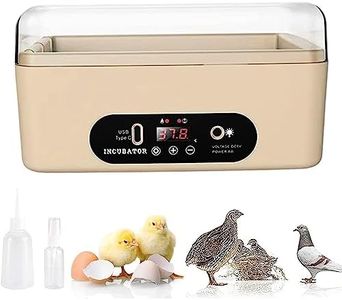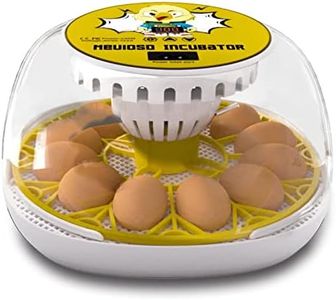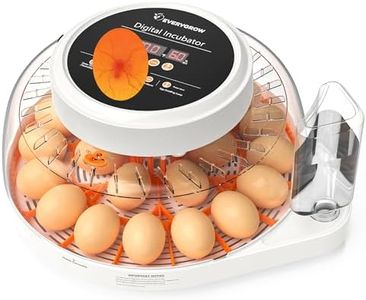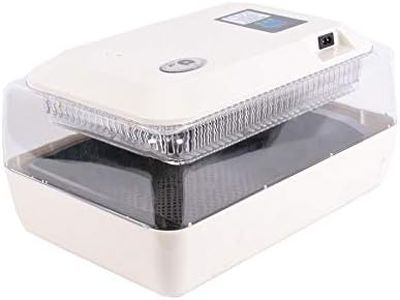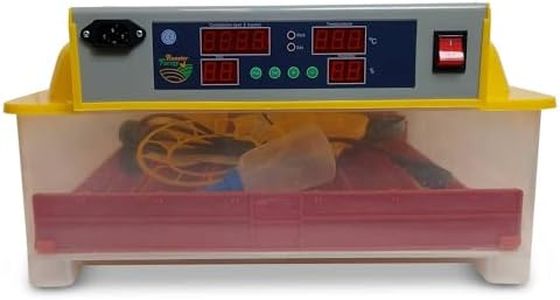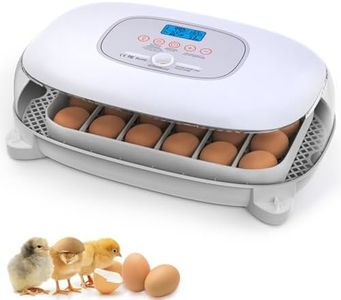We Use CookiesWe use cookies to enhance the security, performance,
functionality and for analytical and promotional activities. By continuing to browse this site you
are agreeing to our privacy policy
10 Best Duck Egg Incubators
From leading brands and best sellers available on the web.By clicking on a link to a third party's website, log data is shared with that third party.
Buying Guide for the Best Duck Egg Incubators
Choosing the right duck egg incubator can make a big difference in the success of hatching healthy ducklings. The key to a good purchase is understanding how incubators work and knowing which features matter most for your needs. Before deciding, consider the number of eggs you want to incubate at once, how involved you want to be in the incubation process, and how much time you can dedicate to daily tasks like turning eggs or adjusting settings. A reliable incubator creates stable conditions for the eggs, with the right temperature and humidity, so it's important to select one that matches both the type of eggs you have and your level of experience.Egg CapacityEgg capacity refers to the maximum number of duck eggs the incubator can hold at one time. This is important because it directly affects how many ducklings you can hatch in a single batch. Incubators typically range from small units holding less than a dozen eggs to large ones that can accommodate dozens or even more. If you are a hobbyist or just starting, a small to medium incubator might be best, as they are easier to manage and require less frequent monitoring. For those with more experience or larger goals, a bigger incubator can save time and effort, but it also requires more attention to detail and stable environmental conditions.
Automatic vs. Manual Egg TurningDuck eggs need to be turned several times a day to ensure healthy development, and incubators come with either manual or automatic turning options. Automatic egg turning features turn the eggs for you on a timed schedule, which reduces the time and effort you need to spend and helps maintain consistent conditions. Manual turning requires you to turn each egg by hand multiple times daily. Automatic models are ideal for busy individuals or those who may forget, while manual options can be suitable for people who want a hands-on experience or who are incubating just a few eggs.
Temperature ControlStable temperature is critical for successfully hatching duck eggs. Incubators offer different levels of temperature control, ranging from basic adjustable thermostats to advanced digital displays with precision controls. Some models also feature alarm systems for temperature fluctuations. Beginners will benefit from incubators with easy-to-read displays and automatic temperature management, while more experienced users might be comfortable managing finer adjustments. The key is to ensure the incubator can reliably hold the ideal temperature for duck eggs, which is typically around 37.5°C (99.5°F).
Humidity ControlHumidity inside the incubator ensures proper moisture loss from the eggs, which is crucial for ducklings to hatch successfully. Some incubators have integrated humidity controls, digital readouts, or even automatic humidifiers, while simpler models may just use water trays that you fill manually. If you want low maintenance and higher hatch rates, look for precise or automatic humidity control. For those comfortable monitoring and making adjustments, manual control offers flexibility. Remember that duck eggs require higher humidity than chicken eggs, so make sure the incubator can reach and maintain the recommended range.
VentilationVentilation refers to how air circulates inside the incubator, ensuring that eggs receive enough oxygen and that harmful gases are removed. Proper ventilation is especially important for duck eggs, as they need good air exchange throughout incubation and particularly near hatching. Some incubators come with adjustable vents or built-in fans; fan-assisted incubators typically maintain more even air temperature and humidity. If you are new to incubating, models with built-in fans are often easier to use, whereas those with manual vent controls provide more customization for advanced users.
Ease of Cleaning and MaintenanceAn incubator needs regular cleaning to prevent bacteria and ensure the health of the developing ducklings. Units designed with removable trays, smooth surfaces, and accessible interiors are much easier to keep clean between batches of eggs. Those who plan to incubate often or in larger numbers will benefit from an incubator that makes cleaning and maintenance simple, while occasional users may not mind a few extra steps.
